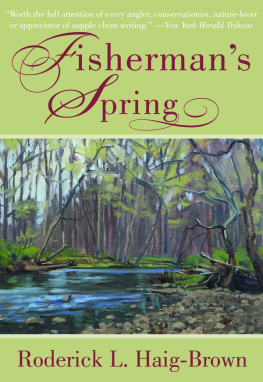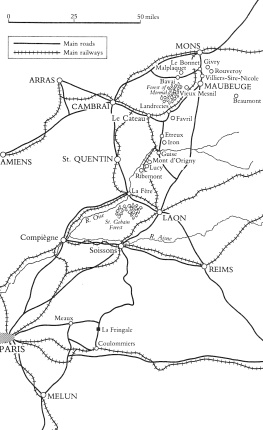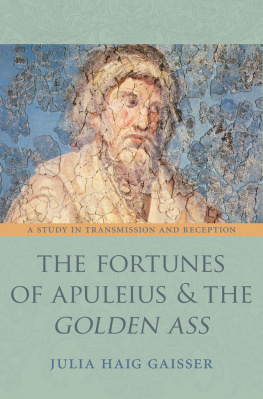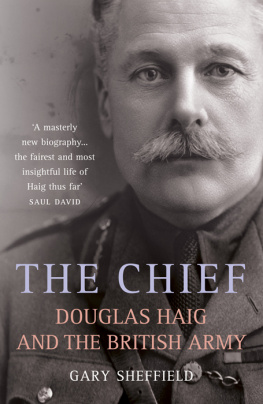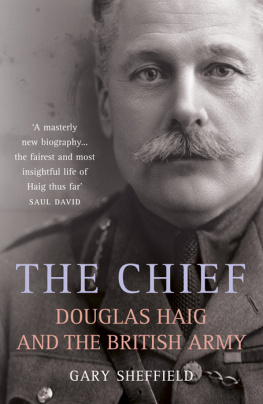Gerard J. De Groot - Douglas Haig, 1861–1928
Here you can read online Gerard J. De Groot - Douglas Haig, 1861–1928 full text of the book (entire story) in english for free. Download pdf and epub, get meaning, cover and reviews about this ebook. year: 2021, publisher: Taylor & Francis, genre: Non-fiction. Description of the work, (preface) as well as reviews are available. Best literature library LitArk.com created for fans of good reading and offers a wide selection of genres:
Romance novel
Science fiction
Adventure
Detective
Science
History
Home and family
Prose
Art
Politics
Computer
Non-fiction
Religion
Business
Children
Humor
Choose a favorite category and find really read worthwhile books. Enjoy immersion in the world of imagination, feel the emotions of the characters or learn something new for yourself, make an fascinating discovery.

- Book:Douglas Haig, 1861–1928
- Author:
- Publisher:Taylor & Francis
- Genre:
- Year:2021
- Rating:4 / 5
- Favourites:Add to favourites
- Your mark:
Douglas Haig, 1861–1928: summary, description and annotation
We offer to read an annotation, description, summary or preface (depends on what the author of the book "Douglas Haig, 1861–1928" wrote himself). If you haven't found the necessary information about the book — write in the comments, we will try to find it.
For seventy years Douglas Haig had been portrayed on the one hand as the Butcher of the Somme inept, insensitive and archaic; and on the other as the Saviour of Britain noble, unselfish and heroic. This polarised, strident and ultimately inconclusive argument had resulted in Haig becoming detached from his own persona; he had become a shallow symbol of a past age to be pilloried or praised. The middle ground in the Haig debate had been as barren as No Mans Land.
There should be no mystery about Haig. Certain from a very early age of his own greatness, he preserved every record of his achievements: diaries, letters, official reports etc. The opinions of his contemporaries are likewise readily available. But until this book the material had not been used to construct a complete and accurate picture. Critics and supporters have raided the historical records for evidence of the demi-god or demon and have ignored that which conflicts with their preconceptions. They have likewise raced through his early life in order to get to the war, in the process ignoring the complex process of his development as a soldier. Analyses of Haigs command have consequently been as shallow as the prevailing images of the man.
After eight years of painstaking and detailed research into previously neglected sources, Gerard De Groot gave us a more complete and balanced picture. This book, originally published in 1988, which will appeal both to the general and the specialised reader, is not simply a critique of Haigs command in the war, but an exploration into his personality. Close attention to his early life and career reveals him as a creature of his society, a man who mirrored both the virtues and the faults of Edwardian Britain. What emerges is an intense, dedicated, but ultimately flawed servant of his country whose ironic fate it was to grow up in one age and to command in another.
Gerard J. De Groot: author's other books
Who wrote Douglas Haig, 1861–1928? Find out the surname, the name of the author of the book and a list of all author's works by series.




